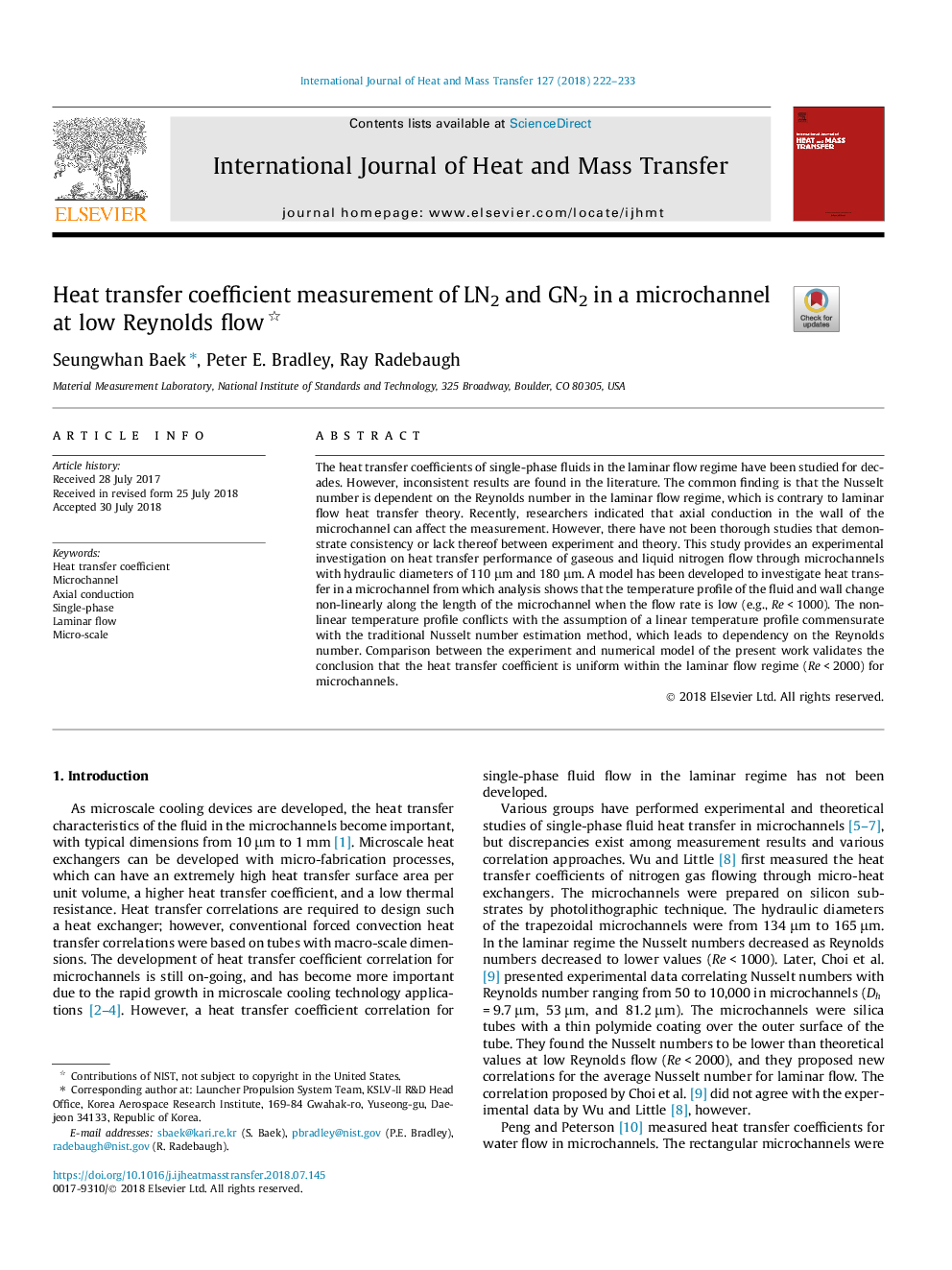| Article ID | Journal | Published Year | Pages | File Type |
|---|---|---|---|---|
| 8941966 | International Journal of Heat and Mass Transfer | 2018 | 12 Pages |
Abstract
The heat transfer coefficients of single-phase fluids in the laminar flow regime have been studied for decades. However, inconsistent results are found in the literature. The common finding is that the Nusselt number is dependent on the Reynolds number in the laminar flow regime, which is contrary to laminar flow heat transfer theory. Recently, researchers indicated that axial conduction in the wall of the microchannel can affect the measurement. However, there have not been thorough studies that demonstrate consistency or lack thereof between experiment and theory. This study provides an experimental investigation on heat transfer performance of gaseous and liquid nitrogen flow through microchannels with hydraulic diameters of 110â¯Î¼m and 180â¯Î¼m. A model has been developed to investigate heat transfer in a microchannel from which analysis shows that the temperature profile of the fluid and wall change non-linearly along the length of the microchannel when the flow rate is low (e.g., Reâ¯<â¯1000). The non-linear temperature profile conflicts with the assumption of a linear temperature profile commensurate with the traditional Nusselt number estimation method, which leads to dependency on the Reynolds number. Comparison between the experiment and numerical model of the present work validates the conclusion that the heat transfer coefficient is uniform within the laminar flow regime (Reâ¯<â¯2000) for microchannels.
Related Topics
Physical Sciences and Engineering
Chemical Engineering
Fluid Flow and Transfer Processes
Authors
Seungwhan Baek, Peter E. Bradley, Ray Radebaugh,
